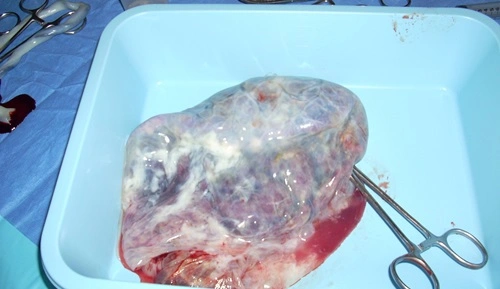Yes, it is generally illegal to sell your placenta in the United States. Federal and state laws regulate the sale and use of human tissue, including placentas, to ensure public safety and prevent unethical practices. However, there are specific legal exceptions and alternatives for personal use or donation.
Legal Framework for Selling Placenta
Federal Regulations
1. The National Organ Transplant Act (NOTA):
- Under NOTA, it is illegal to sell human organs or tissue, including placentas, for profit. This law prohibits the commercialization of any body part intended for transplantation, therapy, or medical research.
2. FDA Oversight:
- The U.S. Food and Drug Administration (FDA) regulates human tissue and biological products under the Public Health Service Act. The sale of placental tissue for commercial purposes requires FDA approval, and it must meet stringent safety standards to prevent disease transmission.
3. Health and Safety Concerns:
- Selling a placenta without proper screening or processing raises public health concerns, including the risk of transmitting infectious diseases like hepatitis or HIV.
State Laws
State laws reinforce federal regulations, and most prohibit the sale of human tissue, including placentas. For example:
- California: State law bans the sale of human organs and tissues for profit.
- New York: Similar restrictions apply, with criminal penalties for violations.
- Texas: The sale of placental tissue is regulated under the state health code, allowing its use only under specific conditions, such as medical research or therapy.
Legal Uses of Placenta
While selling a placenta for profit is prohibited, there are legal avenues for its use:
1. Personal Consumption:
- Placenta encapsulation or consumption for personal use is legal in most states. Many individuals choose to process their placenta for perceived health benefits, such as improving postpartum recovery or boosting milk supply.
2. Donation:
- Placentas can be donated to medical research facilities or tissue banks, where they are used to develop treatments, study diseases, or create skincare products. Donors are not paid, but the donation process is entirely legal.
3. Medical or Cosmetic Applications:
- Placentas are used to produce therapeutic and cosmetic products, such as wound dressings or anti-aging creams. However, these products must comply with FDA regulations, and the placental tissue must come from approved sources.
Penalties for Selling Placenta
Selling your placenta without authorization can lead to significant legal consequences:
1. Criminal Charges:
- Violating federal or state laws on the sale of human tissue can result in criminal charges, including fines and potential imprisonment.
2. FDA Enforcement:
- The FDA may take enforcement actions, including seizures, injunctions, or fines, against individuals or companies involved in the unauthorized sale of placental products.
3. Civil Liability:
- Selling contaminated or improperly handled placenta products could expose sellers to lawsuits for damages caused by illness or injury.
Recent Developments and Cases
1. California, 2023:
- A startup offering placental capsules for sale faced FDA scrutiny for failing to meet safety standards. The company was fined and required to cease operations until compliance was achieved.
2. Florida, 2024:
- Authorities investigated an individual selling placentas online, resulting in criminal charges for unauthorized tissue sales.
3. Texas, 2024:
- A hospital expanded its placenta donation program for medical research, highlighting the legal pathways for tissue use.
Ethical and Cultural Considerations
The use of placentas varies widely across cultures and beliefs. While some cultures view the placenta as sacred and use it in traditional ceremonies, others advocate for its therapeutic benefits in postpartum recovery. These practices are generally permitted as long as they do not involve commercial transactions.
Tips for Navigating Placenta Use Legally
1. Research Local Laws:
Understand your state’s regulations on placenta use and sale to avoid legal issues.
2. Consider Donation:
Donating your placenta to a medical or research facility is a legal and impactful way to ensure its use benefits others.
3. Work with Professionals:
If you plan to encapsulate or consume your placenta, consult a licensed professional who adheres to safety guidelines.
4. Avoid Online Sales:
Selling placenta online violates federal and state laws and exposes you to legal and health risks.
Common FAQs
Q1. Can I sell my placenta for medical research?
Ans: No. While you can donate your placenta for research, selling it for profit is prohibited under federal law.
Q2. Is it legal to consume my placenta?
Ans: Yes, consuming your placenta is legal in most states. However, ensure it is processed safely to avoid health risks.
Q3. Can hospitals sell my placenta without my consent?
Ans: No. Hospitals must obtain your consent before using or donating your placenta for medical or research purposes.
Q4. Are there benefits to donating my placenta?
Ans: Yes, donated placentas can be used to advance medical research, develop treatments, or create therapeutic products.
Q5. What happens if I sell my placenta illegally?
Ans: Selling your placenta illegally can result in criminal charges, fines, and potential imprisonment under federal and state laws.


